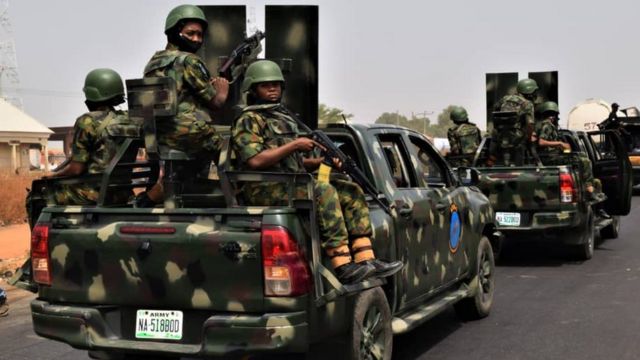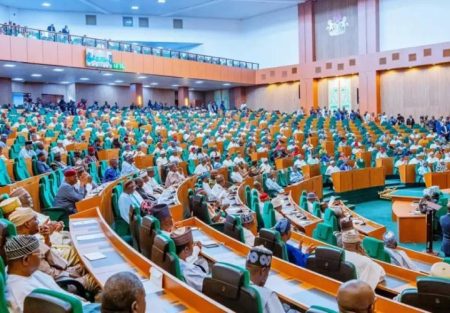Paragraph 1: Introduction
The Nigerian Army, under the banner of Operation Hadin Kai, has achieved significant successes against Boko Haram insurgents in Borno State. Through a series of coordinated military operations across remote communities, the troops have neutralized a prominent Boko Haram commander, Ibn Khalid, along with numerous other terrorists, including their cameraman. These operations have not only disrupted the terrorist group’s activities but also led to the recovery of a substantial cache of weapons, ammunition, and logistical equipment. The army’s actions demonstrate a renewed commitment to combating terrorism and restoring peace to the troubled region.
Paragraph 2: Repelling Infiltration Attempts and Pursuing Insurgents
In Monguno, troops successfully repelled an attempted terrorist infiltration, demonstrating their vigilance and preparedness. Following the thwarted attack, pursuing soldiers discovered blood trails along the insurgents’ withdrawal routes, indicating casualties inflicted on the fleeing terrorists. This proactive approach prevented further attacks and disrupted the group’s operational capacity. The recovered items, including a significant amount of 7.62mm special ammunition, a PKT belt, an AK-47 rifle magazine, a Rocket Propelled Grenade bomb, and other military gear, represent a significant blow to the insurgents’ logistical capabilities and impede their ability to launch future attacks.
Paragraph 3: Neutralization of Key Boko Haram Figures
In a separate encounter at Bitta, located in Gwoza Local Government Area, troops again demonstrated their resolve by repelling another infiltration attempt. The insurgents were met with overwhelming firepower, resulting in the deaths of several fighters. Significantly, among the casualties were Ibn Khalid, a senior Quiad commander, and the group’s cameraman. This neutralization of key figures within the terrorist organization disrupts its command structure, propaganda efforts, and overall operational effectiveness. The recovery of additional weapons, AK-47 magazines, and a camcorder from the scene provides valuable intelligence and further weakens the group’s capacity to document and disseminate their activities.
Paragraph 4: Extended Operations and Further Successes
Beyond these specific encounters, various subsidiary operations conducted within the same period demonstrated the army’s wide-ranging offensive against the insurgents. Stretching from Sambisa Forest to Madagali and Kaga Local Government Areas, these operations resulted in the neutralization of at least 17 additional terrorists. The seizure of several motorcycles and logistics items further cripples the group’s mobility and supply networks, restricting their ability to operate and launch attacks across the region.
Paragraph 5: Strategic Implications and Long-Term Impact
The successes achieved by Operation Hadin Kai represent a significant step towards dismantling Boko Haram’s network and restoring stability to the region. The neutralization of key leaders like Ibn Khalid disrupts the group’s command structure and weakens its ability to coordinate attacks. The recovery of weapons, ammunition, and logistical equipment depletes the insurgents’ resources and hinders their operational capacity. Furthermore, the disruption of their propaganda efforts, with the elimination of their cameraman, restricts their ability to spread their ideology and recruit new members.
Paragraph 6: Looking Ahead: Continued Efforts and Challenges
While these successes are commendable, the fight against terrorism requires sustained vigilance and continuous efforts. The Nigerian Army must remain proactive in pursuing and neutralizing remaining Boko Haram elements, while also addressing the root causes of the insurgency. This includes fostering economic development, promoting education, and addressing social grievances that contribute to radicalization. The ongoing efforts of Operation Hadin Kai offer a glimmer of hope for a more peaceful future, but the fight is far from over. Continued collaboration between security forces, government agencies, and local communities is crucial to achieving long-term stability and eradicating the threat of terrorism in the region.














